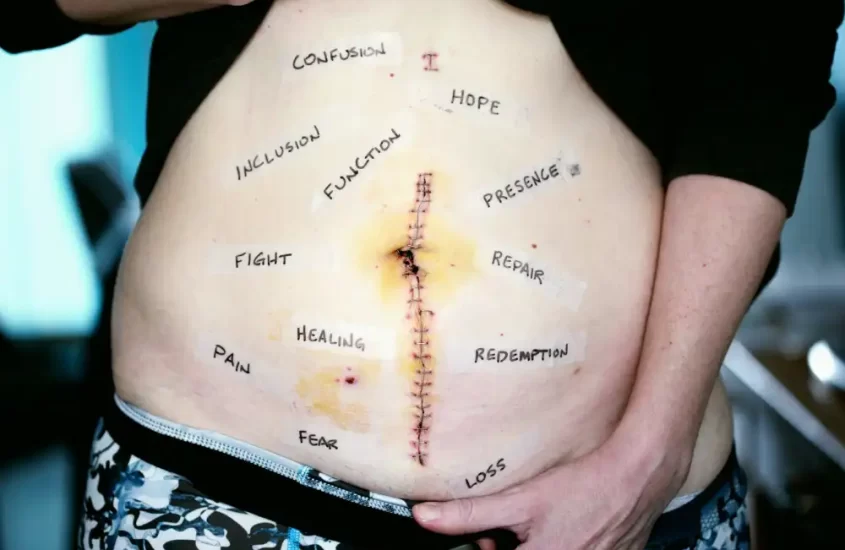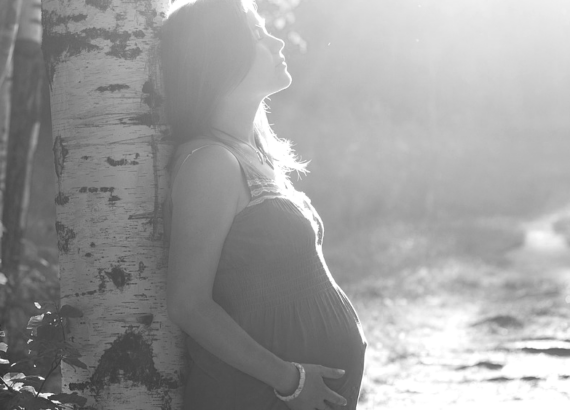Identifying & Coping With Birth Trauma

Bringing new life into the world often entails so much joy that we overlook how traumatic the experience can be. Childbirth is a labor of love, but it is also fraught with danger, and many women feel powerless during the process. There’s no rewind, fast forward, or pause buttons during childbirth — our bodies move through the process at their own pace. During that time, we’re surrounded by busy medical professionals with their own timelines and protocols.
For many, childbirth is simultaneously joyful and traumatic. In today’s post, we’ll explore how to recognize and cope with signs of birth trauma.
What Causes Birth Trauma?
In order to understand birth trauma, it’s important to recognize that trauma is both subjective and physiological. An experience that is traumatic for one person may not be for another; trauma is also closely linked to our fight or flight instinct and our response to stressful situations. Childbirth can be dangerous and frightening, and women in labor often feel disempowered by medical professionals.
Some common triggers for birth trauma include:
- Life or death medical decisions.
- Emergency medical procedures (an unplanned c-section)
- Feeling humiliated or abused by medical staff
In addition, those with a history of other mental health issues may be at higher risk for birth trauma.
Signs of Birth Trauma
Because trauma is the result of our physiological response to dangerous and terrifying situations, birth trauma is similar to PTSD in many ways. Childbirth is a harrowing experience, especially without a supportive environment. Some common signs of birth trauma include:
- Flashbacks to childbirth
- Recurring nightmares
- Avoiding medical professionals
- Increased irritability
- Insomnia
- Anxiety
- Panic attacks
- Depression
- General fatigue
It’s important to understand that some sources estimate the number of traumatic childbirths could be as high as 30 – 34%. In no way is birth trauma a personal failing; it’s a physiological response and a natural effect of our innate survival mechanisms.
Coping with Birth Trauma
Communication
As with many problems in life, the first step in coping with birth trauma is recognizing and accepting it exists. It is important for new mothers to feel heard and understood, particularly after a traumatic birthing process. For many, talking about the experience in a safe and supportive environment can be enough to diminish the lingering effects of trauma.
Establish Routine
Any new arrival upsets our existing routine, making establishing new, healthy routines extra important. Part of this process might include scheduled social time with family and friends or having company over to help with upkeep around the house during the first few months after childbirth.
Self-Care
When a newborn arrives, it takes center stage — and it’s common for new parents to neglect their own physical and emotional health. Self-care is tricky for many, even at the best of times, but with a baby in the house, it can seem like a pipe dream. For someone suffering from birth trauma, self-care is particularly important because it is how we heal.
- Delegate tasks to friends & family.
- Schedule time for hygiene & light exercise.
- Give yourself permission to be less than perfect.
- Get some time out in the sun & fresh air
- Focus on eating a healthy, balanced diet.
- Make social time for yourself without the baby.
In order to be our best selves for our babies, we have to make sure we keep our own bodies running smoothly.
Schedule Counseling
A traumatic experience leaves a lasting physiological impact on our brain — but those wounds do heal with proper care. Navigating birth trauma is not unlike dealing with PTSD. There are ways to put those experiences behind us — and none of them are as simple as “toughen up” or “get over it.” If you’re struggling to overcome birth trauma, reach out, and we can explore therapeutic options with a history of success.




